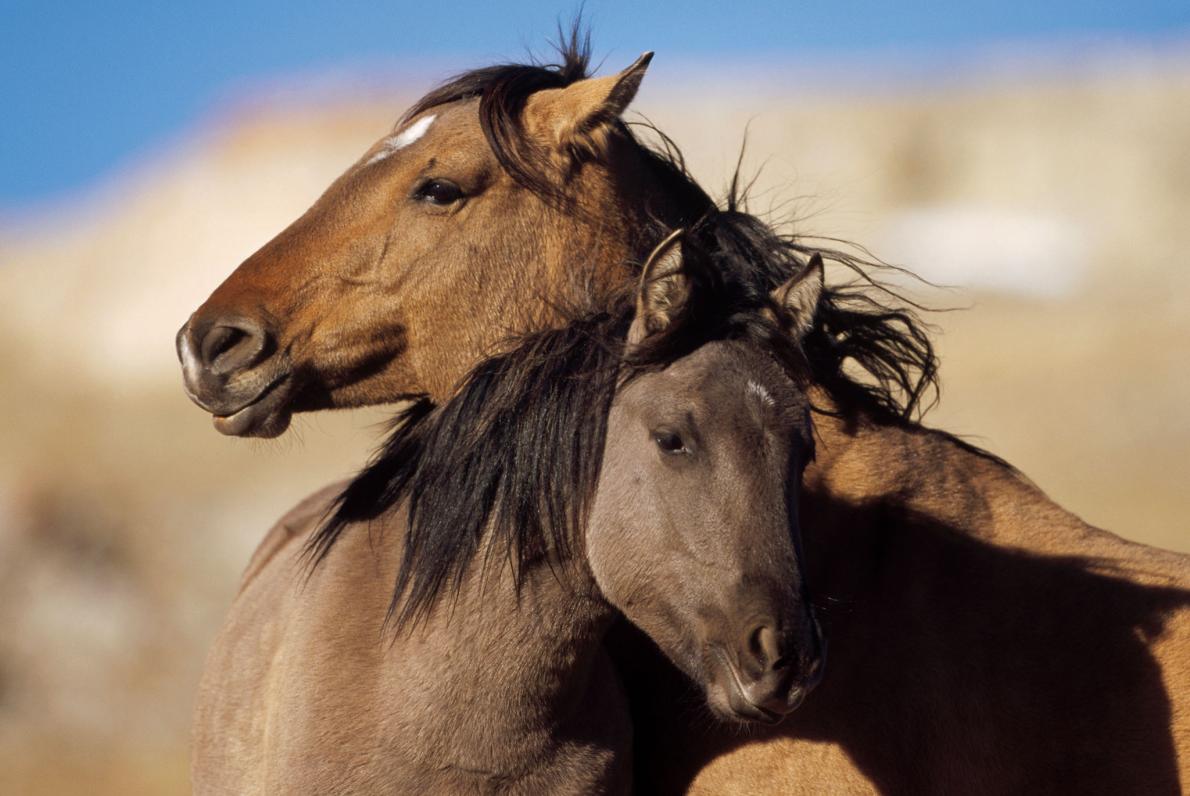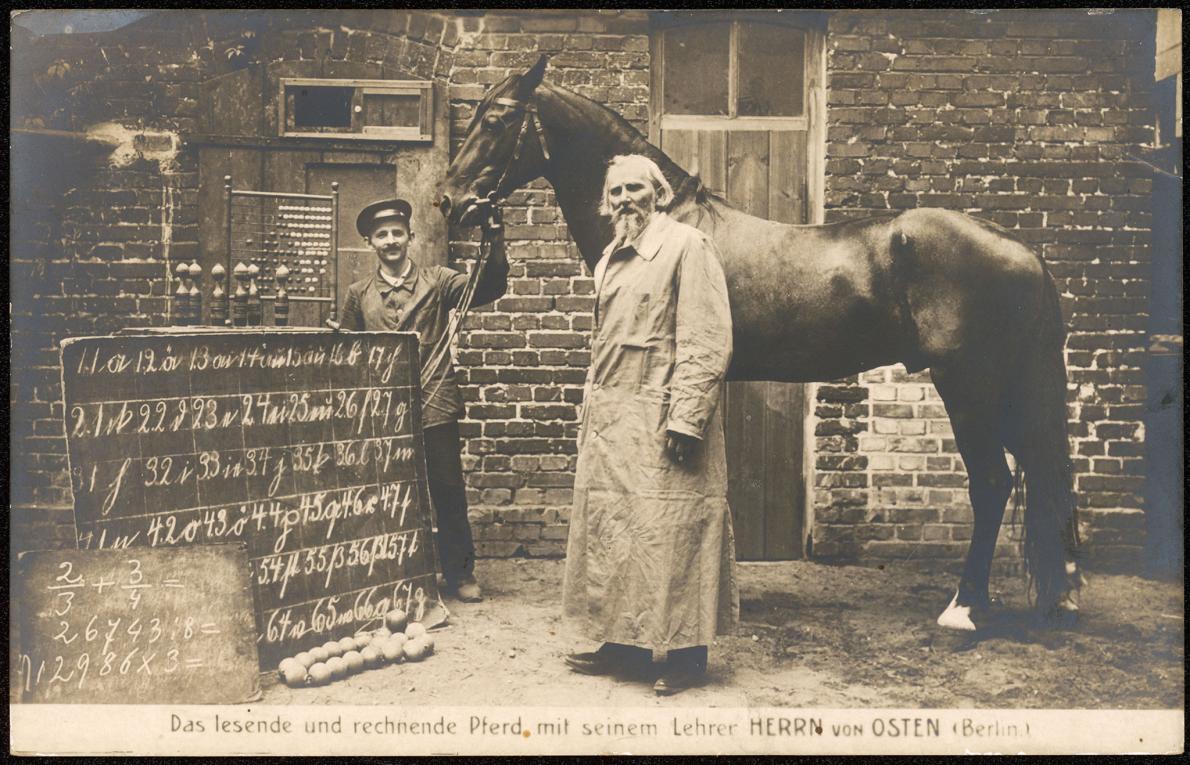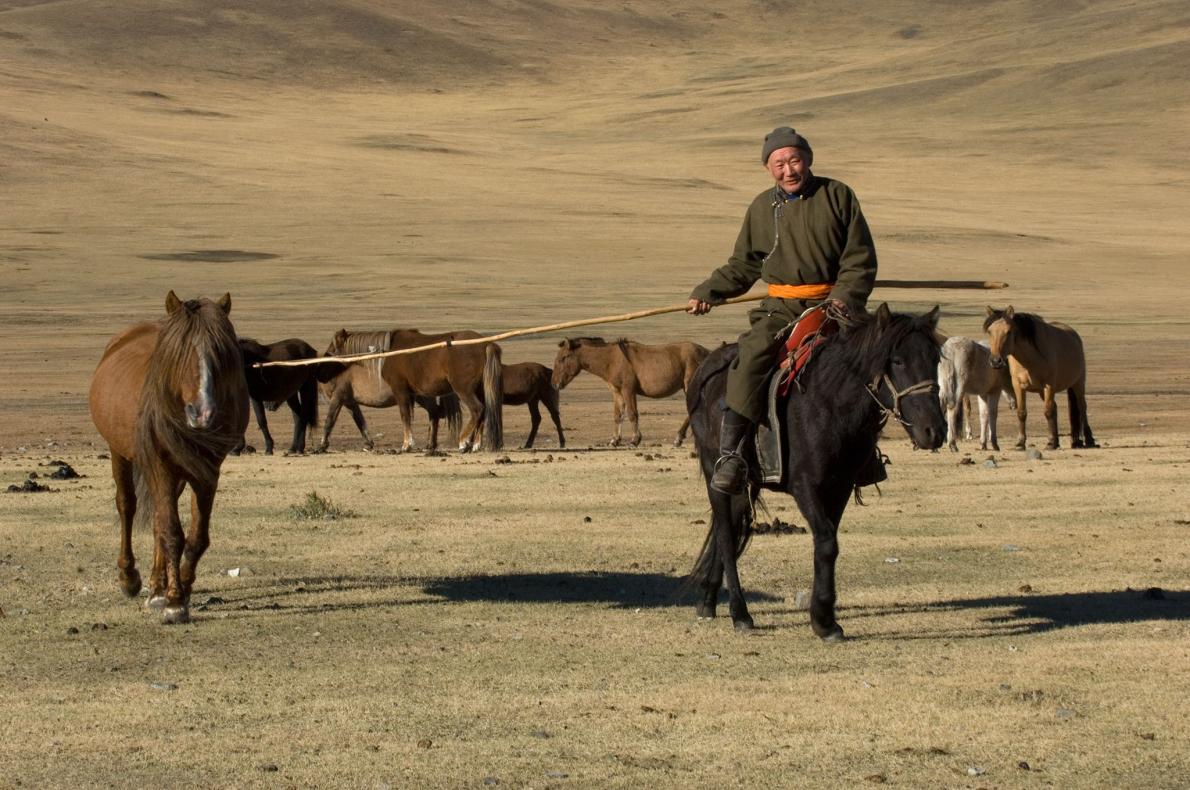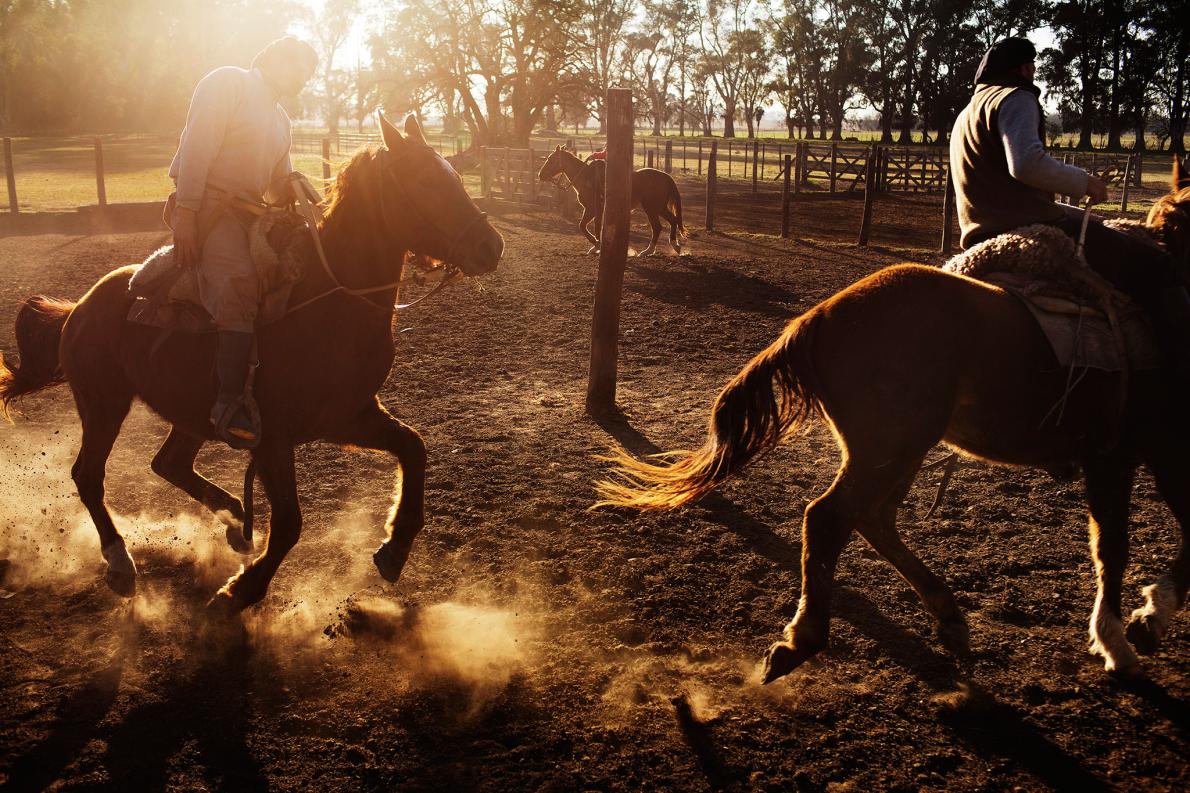Read Before Riding: Horses Have Consciousness

Horses have been domesticated for 5,000 years, but we’re still learning about how they think.
Horses were domesticated more than 5,000 years ago and have been deeply connected to humans ever since. In The Horse: The Epic History Of Our Noble Companion, Wendy Williams harnesses a lifetime in the saddle to explore our ancient relationship with the horse, from the cave paintings of Chauvet to the steppes of Eurasia, and the dude ranches of the American West to a laboratory in Texas where behavioural scientists are plumbing the depths of equine consciousness.
Talking from her home on Cape Cod, she explains why we are having to rethink our preconceptions about animal consciousness; how a mathematical horse fooled humans; and why missing that second cup of coffee to go and muck out the barn can bring rich rewards.
Tell us about how the horse, Clever Hans, was actually cleverer than humans thought — and what he teaches us about horse intelligence?
Clever Hans was a horse that worked closely with his owner, and the owner believed that Hans could actually do math, and do it very well! [Laughs] This was about 100 years ago. His owner would ask Clever Hans to do addition or subtraction tables and Hans would always come up with the right answer. He became very famous but many people were skeptical, so there were a lot of tests.
The Horse book cover
BOOK COVER COURTESY OF FARRAR, STRAUS AND GIROUX BOOKS
At first Hans succeeded in all the tests and showed that he could indeed do mathematical computations. What happened is that Hans would stand there with the person doing the questioning. When it was the trainer, Hans was always right. Then they put other people up against Hans and said, “Ask Hans to do a calculation.” Hans would do an addition or subtraction problem and still get it right. Then someone had the idea of putting the person asking the question behind a barrier, so that Hans couldn’t see the person. As soon as that happened, Hans could no longer do the math.
It turns out Hans was watching the human beings and the subtle clues that told Hans when he had actually gotten to the right number. For example, if the problem was 10 minus 5, and the answer was 5, Hans would tap his foot one, two, three, four, five times. But it turns out the person doing the questioning was giving an unconscious clue to let Hans know he had gotten to the right number. Maybe the person would lean forward a little or look more excited. So Hans was reading the clues that people were giving off in this very subtle way, and giving the right answer.
Eventually, people said Hans was not a very smart horse because he really couldn’t do addition and subtraction. But the new thinking about Hans is that it showed how incredibly smart he was, that he could read clues in the human psyche so much more clearly than we can read clues in horse language.
Human beings tend to think we’re special because we have consciousness—define consciousness for us and talk about Don Griffin’s theory.
Don Griffin is a friend of ours, who discovered before WWII that bats eco-locate. In those days that was a startling discovery because people didn’t see eco-location as a form of radar, so they assumed it didn’t exist. Don proved it did and that bats used it and went on to spend his career studying animals. At that time, people believed only humans had consciousness. But as with so many boundaries between us and the living world, that’s been breaking down.
Toward the end of his career he wrote a book called Animal Minds, which claimed that animals have consciousness. When it first came out, Don got a great deal of flack. There were people who called it the Satanic Verses of the animal science world. But as things progressed he came to be known as a leader in the field of consciousness in animals. He died about a decade ago. I wish he were around to see how widely accepted his ideas and books are now.
Ranchers in Mongolia and Spain use semi-feral horses in a way that may be very close to how humans first domesticated the horse. Tell us about those relationships and how they work.
For quite a long time, science divided animals into wild and domesticated. The new theory, as we become more refined in our understanding and science, is that in the process of domestication there was not this monolithic boundary between wild and domesticated. Humans began associating with a number of different animals and a number of animals began associating with humans because it was for our mutual benefit. I have a wonderful video that shows horses in South Africa lying down on the ground with baboons climbing up on the horses’ backs to groom them. The horses look like they are in seventh heaven!
You cite Hans Hofmann, of the University of Texas, as saying “vertebrates have bonding circuitry.” What does that mean? Are we hardwired to bond not just with our own kind — but with other species?
I wouldn’t use the word “hard-wired”. I would say that evolution and biochemistry have given us an affinity with other animals. People who live in cities and don’t have animals in their lives, I think, are lonely for them. I know I am when I don’t have animals around me. I feel lonely and ill at ease. We have this biochemistry that makes us like to have a lot of life around us.
I had a wonderful experience once in a camp in Zimbabwe. I woke up very early one morning, not because I wanted to but because there were so many noises outside my tent. The whole world was this amazing symphony of sound I’d never heard before. The baboons were very loud but there were all kinds of other animals out there too, like monkeys and birds. It was overwhelming; a quite beautiful feeling. And I realized that’s the world we evolved to hear. But so few of us get to hear that wonderful sound.
[Laughs] I don’t know because I don’t know you very well or the horses you’ve ridden but there are some wonderful places that teach you about bonding. There’s a place in Greenfield, New Hampshire that rescues mustangs. They have a program that brings you to the ranch and allows you to spend a week working with a wild mustang. Even if you’ve never had any experiences with horses before, they will teach you to be with that horse. At first, you don’t ride at all. You learn about the horse as a living animal and the horse gets to know you. As the week progresses, that bonding becomes closer and closer and it then seems natural to get up on the horse’s back and start to ride.
One of the horses you write about has been called by The Guinness Book Of Records “the smartest horse in the world.” Tell us about Lukas.
Lukas was a racehorse, who didn’t do very well on the racetrack and ended up lame because his legs couldn’t stand the pressure. He went from one barn to another after he was retired from racing. No one could work with him until he was acquired by a woman in California called Karen Murdock, who managed to establish the bond you and I have just been discussing. Her approach was very gentle and clear, shaping rather than forcing his behavior. And she ended up being very successful.
When I visited Karen and Lukas, Lukas got extremely jealous [Laughs] He walked over to Karen when we were talking and picked up the sleeve of her sweater and led her away, because he wanted to be with her. He seemed to enjoy the little games Karen had devised for him to play with her. Karen had a little school desk for Lukas and she’d ask Lukas “Which of these things is red?” And Lukas would pick out the red one. Or she would ask him “Which of these is square?” And he would pick out the square object.
It was clear that Lukas wanted to engage in these games with Karen. It wasn’t that he thought that Karen would give him a carrot. It was that he enjoyed engaging in these games. It was the first time the realization hit me that animals love to engage with us in games. And if you figure out how, in ways that work for the horse as well as for you, you can end up with a really fruitful relationship that also includes riding. But riding is not necessarily the first goal of these relationships.
What have horses taught you that you use in your everyday life?
Horses teach you courage, patience, persistence; rewards of kindness and gentleness; companionship; the excitement and vitality of life; and warmth. They also provide an awful lot of memories, and the importance of caring for another living thing, which it took me a long time to learn! [Laughs]
At the beginning of the book I write about my horse, Whisper, and some of the things that Whisper had to do in life because, though I loved and cared for him, I was a pretty clueless owner, at the age of twenty. Luckily for me, I had what I call a “street genius” in Whisper and his sidekick, Grey.
One January morning, I woke up and the temperature was minus 10 degrees. I decided that I needed another cup of coffee before I went down to the barn to take care of the horses. I was standing there having my second cup of coffee and I saw this amazing horse make a leap over the fence, trot up to the water faucet on my house and start kicking it until he got a drink [Laughs] He drank his fill, then went back down to the barn to wait for breakfast.
I was amazed that he was so able to take care of his needs when I should have done that myself. So, if you forego that second cup of coffee, and go and take care of your horse, you will get paid back for that.
Политика конфиденциальности | Правила пользования сайтом










